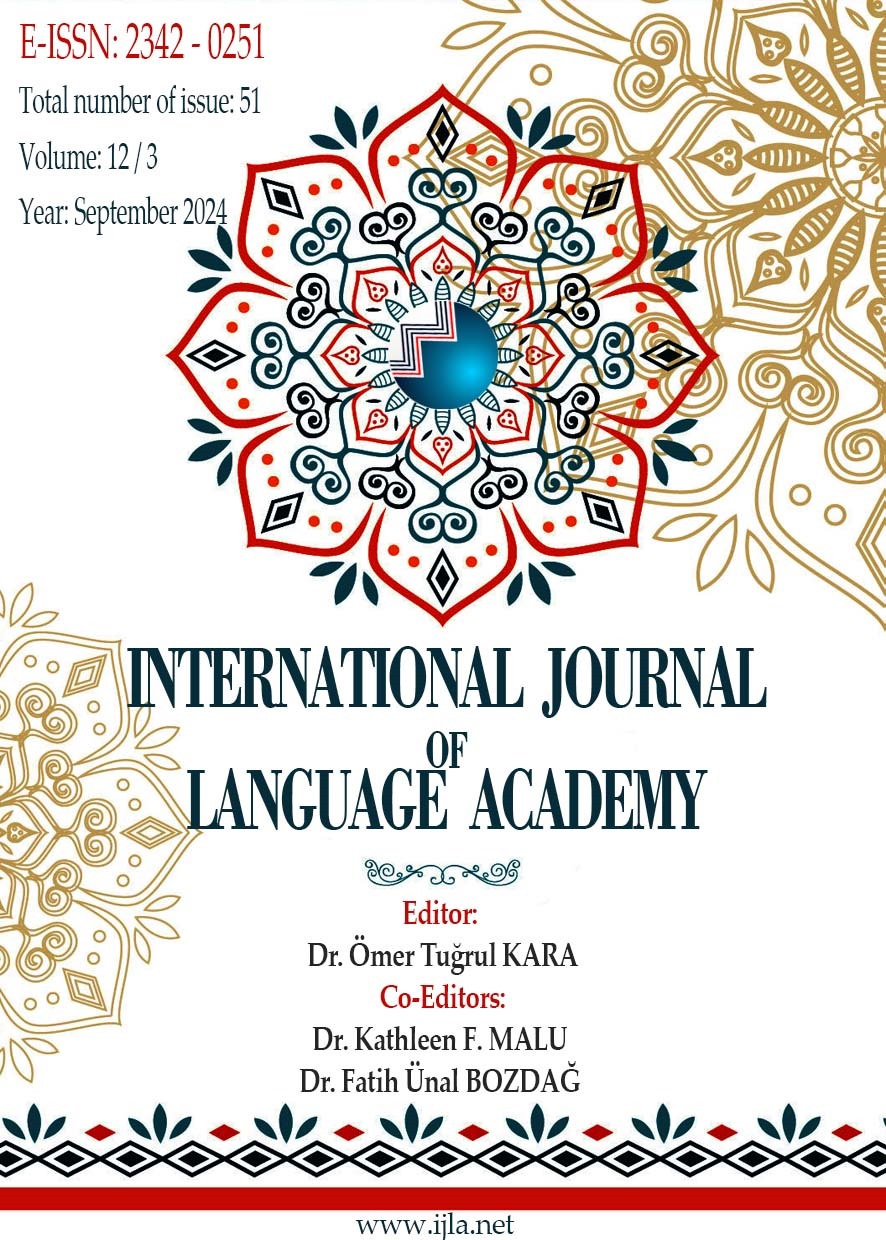KOVİD-19’A YÖNELİK TÜRK AYKIRI ATASÖZLERİ VE FRANSIZCA ÇEVİRİLERİ ÜZERİNE GÖZLEMLER: EKŞİ SÖZLÜK ÖRNEĞİ
Author :
Abstract
Geleneksel atasözlerinde sözcük, anlam ve sözdizimi düzeyinde yapılan değişikliklerle oluşan yeni üretimler, atasözlerini inceleyen paremiyoloji alanında aykırı atasözleri olarak tanımlanmaktadır. Gündemdeki olaylara dikkat çekmek üzere internet ve çeşitli sosyal medya sitelerinde paylaşılan aykırı atasözleri ile yeni bir kültür ortamının oluştuğu görülmektedir. Çalışmanın amacı, Kovid-19’a ilişkin internet kullanıcılarının Türk atasözlerinde yaptıkları değişiklikleri anlamsal ve yapısal boyutta incelemek, aykırı atasözlerinin Fransızcaya çevirisinde ortaya çıkan sorunları saptamak ve bu sorunlara yönelik uygulanan çeviri yöntemlerini gerekçeleriyle birlikte ortaya koymaktır. Parçası olduğu toplumun manevi değerlerinden, hayata bakış açısından ve söylem biçimlerinden izler taşıyan Türk atasözleri, sosyal medya ve katılımcı sözlük sitelerinde farklı şekillerde kullanılmaktadır. Kovid-19’a yönelik aykırı atasözlerine ulaşmak üzere “Ekşi Sözlük” platformu “Atasözlerini corona ile değiştir” başlığıyla taranmış ve çalışmanın bütüncesi 10 Türk atasözünden üretilmiş 25 aykırı atasözü ile sınırlı tutulmuştur. Buna göre, aykırı atasözlerinin sözcük değişimi, farklı sözcüklerin eklenmesi, ikinci bölümünün değiştirilmesi gibi yöntemlerle oluşturulduğu kaydedilmiştir. Diğer yandan, aykırı atasözlerini oluşturan iki Türk atasözünün Fransızcada yalnızca bir karşılığı, diğer atasözlerinin ise çeşitli yapı ve bağlamlarda ve birden çok karşılığı bulunduğu saptanmıştır. Bu nedenle aykırı atasözlerinin geleneksel yapıları ile birebir aktarmanın mümkün olmadığı belirlenmiştir. Fransızca pek çok karşılığı bulunan Türk atasözlerinden üretilmiş aykırı atasözlerinin çevirisi bir sorun olarak ortaya çıkmış ve bu çevirileri erek kitlenin doğru anlayabilmesi için çeşitli stratejilerin kullanılması gerekli görülmüştür.
Keywords
Abstract
New productions comprised of the changes in the traditional proverbs in terms of word, meaning, and structure are identified as anti-proverbs in the field of paremiology, which examines the proverbs. It is seen that a new cultural environment was formed with the anti-proverbs shared on the internet and various social media sites to draw attention to current events. This study aims to analyze the semantical and structural changes made to Turkish proverbs by internet users regarding Covid-19, identify the problems in translating anti-proverbs to French, and determine the translation methods applied for these problems and their justifications. Turkish proverbs bearing traces of moral values, points of view towards life, and modes of discourse of the society they belong to are entirely used in different ways on social media and collaborative hypertext dictionary sites. To reach the anti-proverbs about COVID-19, the “Ekşi Sözlük” platform was scanned with the keyword “Replace the proverbs with coronavirus,” and the corpus of the study was limited to 25 anti-proverbs, produced from 10 Turkish proverbs. According to the results, it was noted that anti-proverbs are produced by methods such as replacing words, adding different words to the original ones, and changing their second part. Additionally, two Turkish proverbs constituting the anti-proverbs have only one equivalent in French, while others have various structures and contexts and more than one French proverb.For this reason, it was determined that transferring the anti-proverbs literally with their traditional structures is impossible. The translation of anti-proverbs produced from Turkish proverbs having many equivalents in French emerged as a big problem. It was deemed necessary to use various strategies for the target language readers to understand them correctly.





